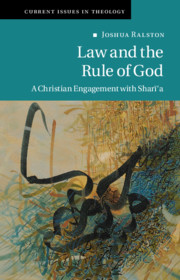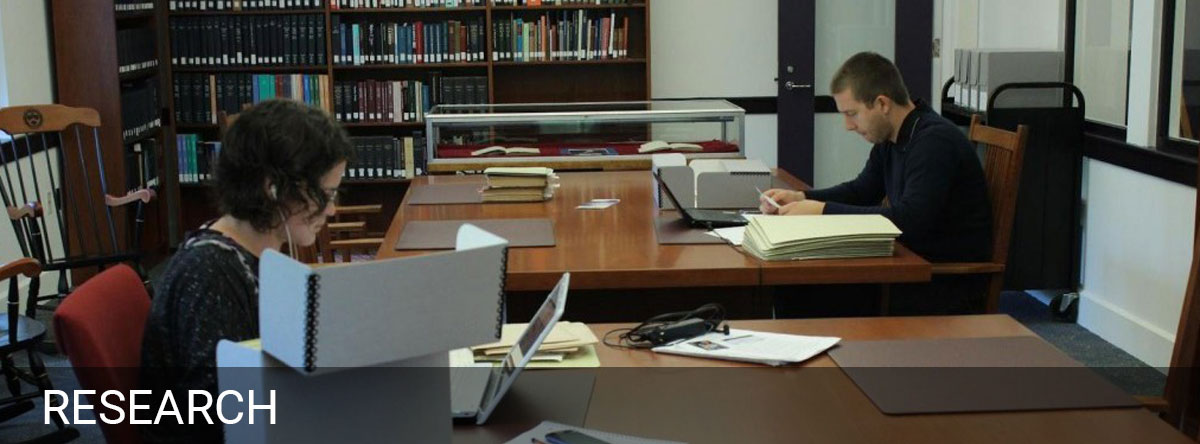 Joshua Ralston. Law and the Rule of God: A Christian Engagement with Sharīʿa (New York: Cambridge University Press, 2020), 351 pp. $99 (hardback).
Joshua Ralston. Law and the Rule of God: A Christian Engagement with Sharīʿa (New York: Cambridge University Press, 2020), 351 pp. $99 (hardback).
Joshua Ralston’s Law and the Rule of God: A Christian Engagement with Sharīʿa proposes a new approach to Christian-Muslim dialogue. This approach takes the form of comparative political theology concretely, by attending to debates surrounding sharīʿa, or religious law, in each tradition. Of course, focusing on sharīʿa is a contentious move. While issues of how to integrate different national laws with sharīʿa are prominent in our globalized and pluralistic world of the 21st century—both in Muslim and non-Muslim countries—Ralston himself notes that “there remains a deep-seated unease among most Christians and other non-Muslims in the West with the very notion of sharīʿa” (8). The reasons for this unease quickly come to mind: many non-Muslims associate sharīʿa with issues such as “theocratic government, limits on personal freedom, punishments of amputation and stoning, and patriarchy” (8). Additionally, for many Christians, “Islam’s apparent fixation on law is both theologically and politically dangerous,” (8) threatening the centrality of the gospel. In this book, Ralston wants to prove just the opposite: “an honest engagement with Muslim’s own differing and diverse accounts of the importance of sharīʿa and the moral world that it imagines and ritually enacts” will be the beginning of a new, mutually enriching dialogue (52).
While the first chapter (“Christian Political Theology as Comparative Theology”) lays out the aims and vision of the work as just discussed, chapter 2 (“Neither Conciliation nor Confrontation”) distances itself from previous attempts of Christian-Muslim dialogue. Chapters 3 (“That Hideous Schizophrenia”) and 4 (“The Difficulty with Distinctions”) focus on the relationship between Christianity and law from both Muslim and Christian perspectives. In chapter 3, Ralston traces Islamic critiques of Christian law through the ages. Chapter 4, in turn, examines how Christian thinkers have sought to make sense of Jesus both affirming and abolishing the law. The central insight is the way in which “convictions regarding the positive nature of public law were drawn from criteria other than the gospel,” such as “culture and nature” (195). According to Ralston, this kind of appeal to nature has very little potential for political change or resistance to injustice (cf. 196f).
The author thus arrives at a clearly formulated need for reading law through Christ to obtain more robust commitments to social justice. To develop such a Christian theology of law, Ralston turns to Barth in chapters 5 (“Building a Christological Legal Foundation”) and 6 (“The Witness of the Law in Comparative Perspective”). Drawing on his thought in both Evangelium und Gesetz and Rechtfertigung und Recht, Ralston believes that “Barth’s insistence on judging all law in light of Jesus Christ, as well as his positive account of law as part and parcel of God’s grace, provide key planks for responding to aspects of Muslim critiques of Christianity and also for addressing the problem […] of quarantining public or civil law from the standards of the gospel” (203). However, Barth is not simply the hero of this new approach to Christian-Muslim dialogue. For one, Ralston calls out Barth’s anti-Jewish and Islamophobic assumptions. On the latter, Ralston throws light on an under-researched area of the Swiss theologian’s thought: the way he used Muslims as a “cipher” for his critiques of the Nazis. Additionally, Ralston points out a lack of concrete judgments in Barth’s thought. While Barth’s vision of the gospel calls people to pursue justice on behalf of all, much of this vision remains at the level of ideals. Barth, on the one hand, provides a response to Muslim critics who see law as largely absent from Christian concerns and hence mitigates what these critics consider a lack of attention among Christians to social justice. On the other hand, in Ralston’s estimation, Barth could learn a lot from the Islamic legal tradition and its attention to political realities and legal needs.
Ralston develops a Barthian-inspired, Christian, and comparative theology of law in chapter 6. Steeped in Scripture, he argues for a legal conception of the rule of God as the basis for social justice and peace. Conceiving of law as an indirect, provisional witness to the rule of God offers, according to the author, a new ground for Christian-Muslim dialogue. Ralston thus invites Muslim thinkers to join this Christian conversation, bringing their divine authority in law, the relation between sharīʿa and fiqh (Islamic jurisprudence), and the question of the beneficial purposes of the law. In the comparative crescendo of Law and the Rule of God, Ralston emphasizes the nuances of both sides in their engagement with religious and public law, and divine and state authority. For example, Ralston notes that the distinctions made in Islamic legal discussions do not work the same way as the two kingdom theories in Christian thought. We are, in fact, dealing with different concerns and emphases. However, Ralston also points the audience to possibilities for mutual enrichment. For example, the overlap between a Christian law that is an indirect and provisional witness to God’s rule and sharīʿa (particularly as distinct from fiqh) means that the category of “witness” could be helpful to Muslims. At the same time, Christians might learn to appreciate the strong commitments to social justice that sharīʿa holds in areas such as finance.
In this vein, Ralston ends his tour de force by challenging Muslims to shift their attention from law to theology and Christians from theology to law (cf. 328). This call is a contribution towards an “Abrahamic political theology of law” that helps Muslims and Christians see that—despite their very different theological commitments and assumptions—they do share a concern for doing good and right by God’s creation in this world (329). Ralston leaves Christians in particular with a charge: to approach the locus of potential dialogue, sharīʿa, with more humility. Rather than conjuring up images of oppression and adopting a spirit of hostility, Ralston asks fellow Christians to consider shared concerns of political theology, as well as the “more nuanced and rich version of sharīʿa” (7) that has marked centuries of Muslim thought on politics, power, and law.
For the remainder of this review, I want to raise three points for further consideration. First, the audience of Ralston’s call for a new Christian-Muslim dialogue. According to the aims of both the series and the author, this work seeks to address upper-level undergraduates, graduate students, and members of faith communities. To me, this is an optimistic vision given the complexity of this book. Additionally, Ralston assumes certain Protestant Christian commitments. While such an audience of skilled Christian readers surely exists—at the seminary level, for example—it is important to note that Ralston hopes for a third quality in his readers: a willingness and ability to transcend prejudices and assumptions with respect to sharīʿa. This is a tall order for any audience, not merely committed seminary students; particularly since Ralston himself only assumes this kind of engagement with sharīʿa. His own book primarily focuses on developing a constructive Christian response to Muslim criticisms. Ralston spends significantly less time on sharīʿa and thus does not provide the kind of education on Islamic law that his proposal both assumes and hopes to encourage. While such literature exists, of course, readers must seek it out further in order to be the kind of audience that can fully appreciate Ralston’s work and vision for progress.
Second, I do think that while comprehensive in scope, the work suffers from a lack of depth at times. While the author treats many important thinkers on both sides and engages with multiple, very complex discussions, much of that work stays at the level of summary. That being said, the trade-off between depth and breadth makes sense considering the above-described audience’s potential lack of familiarity with the Muslim authors and their concerns, as well as the nature of Ralston’s overall argument.
Finally, I am not sure how to relate Law and the Rule of God to the field of Islamic Studies. First, Ralston almost exclusively assumes and engages a Sunni perspective. While such an unexplained focus is by itself problematic, it is even more so given the subject matter. Shīʿi thinkers, both past and present, have skillfully debated matters of sharīʿaand legal philosophy, both with a view to more internal, Muslim concerns and in dialogue with Christian thinkers. Second, as I already mentioned, this is mainly a work that serves a certain committed Christian perspective. However, I should note that scholars of Islamic studies will appreciate the material in chapter 3 (regarding Muslim criticisms of Christianity in general and its legal shortcomings in particular).
For the audience identified above (seminary/graduate students, faith leaders, and the intellectually curious Christian public), Ralston’s book contains an audible and convincing call to do better. There is no doubt that Law and the Rule of God drives home both the need and the promise of a new approach to comparative work, as well as the fruitfulness of political theology as the locus of such an approach. “[C]ommitted to both particularity and confession, even as it remains open to learning and exchange,” Ralston’s model promises a mutually enriching and more just way of doing Christian-Muslim dialogue (254). This is particularly true in his assessment of the dullness of a Christian commitment to social justice that shies away from sharpening its legal tools is more than timely. All one can do is hope Ralston’s call will fall on open ears.
Raissa A. von Doetinchem de Rande, Assistant Professor of Religious Studies, Rhodes College
The views expressed here are strictly those of the author; they do not necessarily represent the views of the Center for Barth Studies or Princeton Theological Seminary


